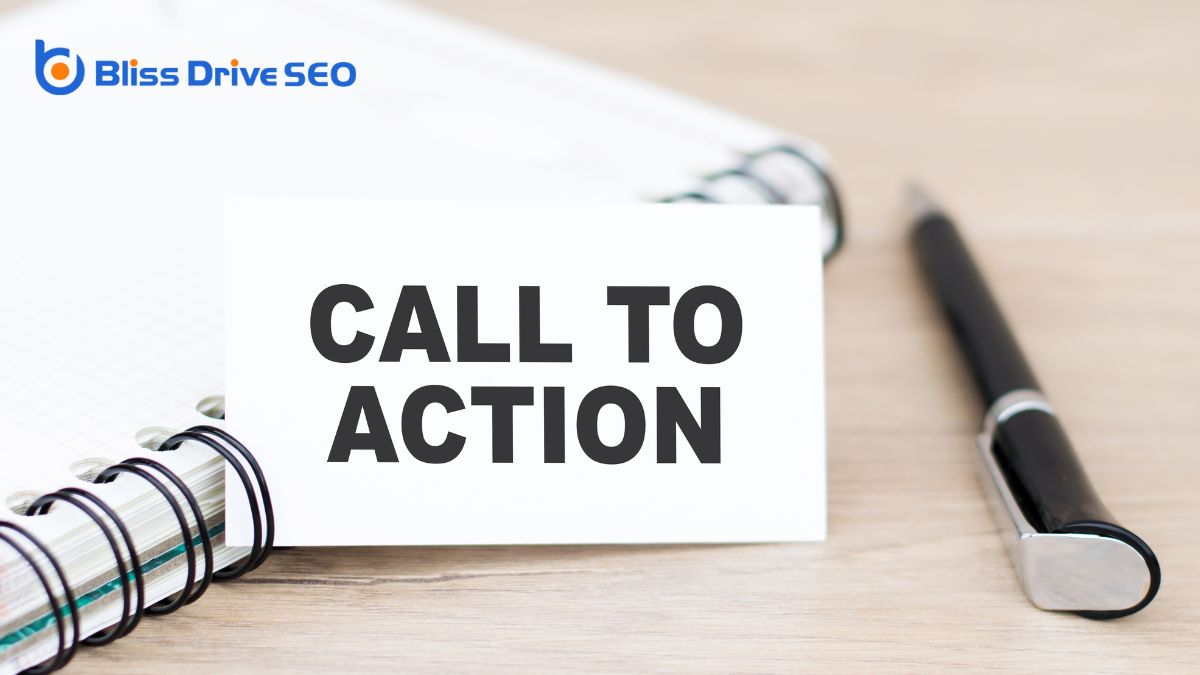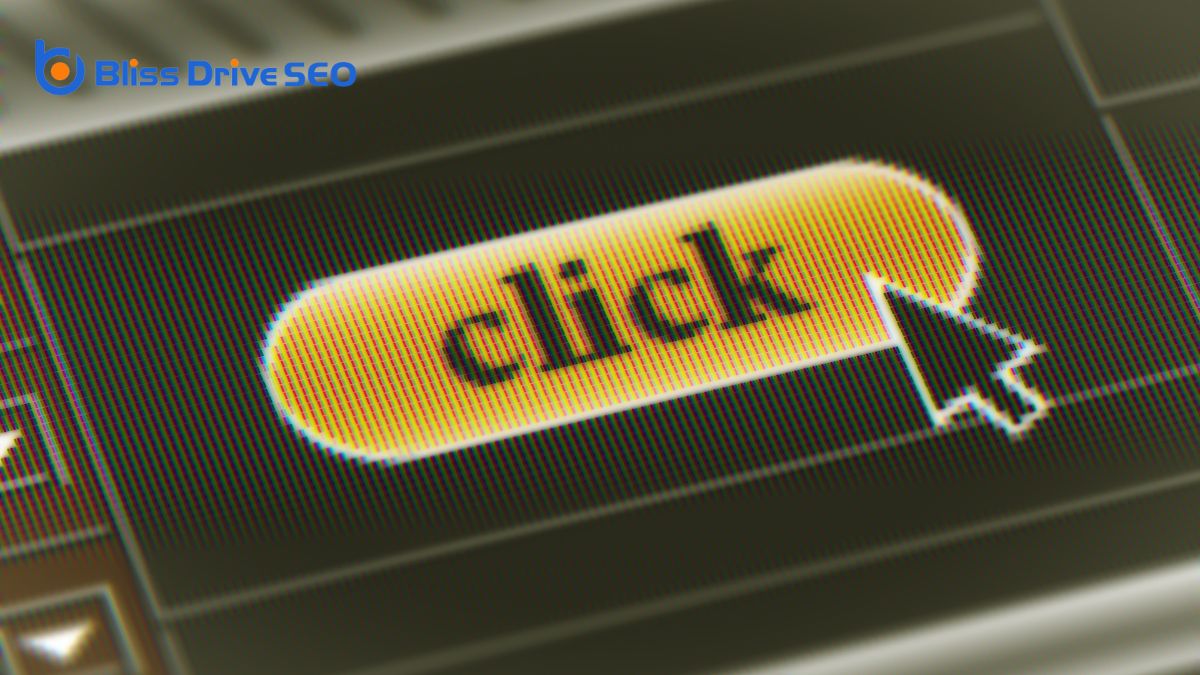Digital Marketing Services
Learn More About Us

You might wonder why call-to-action text is so effective at converting users. It's not just about telling people what to do; it's about how you tell them. Using action-oriented language, highlighting benefits, and creating urgency are key tactics. But it doesn't stop there—color, shape, and text size also play vital roles in capturing attention. And let's not forget about placement and design, which guide the user journey. There's much more to unpack about what makes these elements so impactful. Curious about how to refine your CTA strategy for better results?

When it comes to CTA visibility, it's important to make sure your call-to-action buttons stand out and grab user attention. Your CTA's visibility is vital for driving higher conversionThe completion of a desired action by a referred user, such as making a purchase or filling out a fo... rates. To achieve this, you need to focus on several design elements that enhance how noticeable and engaging your button is on the web page.
First, make sure your CTA button uses colors that contrast well with the background and other text. This contrast helps the button stand out, making it easy for users to spot it instantly. Avoid color combinations that blend in, as they can greatly reduce visibility and confuse users.
Next, place your CTA high on the page. Positioning it in a prominent location ensures that users see it without having to scroll, thereby increasing its chances of being clicked.
Additionally, ensure the button size is appropriate—large enough to catch user attention but not so large that it overwhelms other content.
Lastly, separate the CTA from the surrounding text. Use whitespace and other design elements to create a clear distinction. This separation not only improves visibility but also enhances the overall effectiveness of your CTA, leading to better conversion rates.
To boost your CTA effectiveness, use strong action verbs that prompt immediate responses, like "Buy now" or "Sign up." Focus on what users should do right away while highlighting the benefits they'll receive.
Clear, direct language with action-oriented phrases greatly enhances conversion rates.
Effective call-to-action (CTA) text harnesses the power of strong action verbs to prompt immediate responses from users. When you use action-oriented language, you're guiding users with compelling and clear directives. Strong verbs like "Buy," "Subscribe," or "Download" cut through the noise and tell users exactly what action to take. This direct approach increases the likelihood of conversion.
The active voice is pivotal in CTAs. When the subject performs the action, the message feels more engaging and urgent. Phrases such as "Shop now," "Sign up," or "Learn more" are concise and action-oriented, making them easy for users to understand and act upon quickly.
Highlighting the results users will get by clicking your CTA boosts motivation. For instance, "Get 50% off" or "Start your free trial" immediately communicates the benefit, enticing users to take action. These phrases aren't only compelling but also clear, ensuring users know exactly what to expect.
Incorporating concise, action-oriented language into your CTAs, typically between two and five words makes your message even stronger. This brevity keeps the CTA focused and powerful, driving immediate and effective user engagementThe level of interaction and involvement users have with social media content..
Leveraging action-driven language in your CTAs drives users to take immediate action, greatly enhancing engagement and conversion rates. By using action verbs like "Buy now" or "Sign up," you prompt users to respond instantly. This approach creates a sense of urgency that compels immediate responses, enriching your click-through rates and overall engagement.
Using active voice in your CTAs is vital. It clearly focuses on what you want users to do, making your message direct and easy to understand. For instance, "Download your free guide" is more effective than passive alternatives, leading to higher conversion rates. Concise language further strengthens your CTAs by eliminating unnecessary words, ensuring your message is straightforward and compelling.
Time-sensitive words like "now" and "today" add an extra layer of urgency, motivating users to act without delay. When your CTAs emphasize immediate action, users are less likely to procrastinate, resulting in better outcomes for your campaigns. Highlighting the results users will get from taking action, such as "Get instant access," makes the benefits clear and boosts engagement. By focusing on immediate actions with action-driven language, you can significantly enhance your conversion rates and achieve better results.
Highlighting the benefits users will receive in your call-to-action (CTA) texts can transform casual browsers into engaged participants. When you emphasize what users gain, you instantly capture their attention. Think about phrases like "Get 50% off" or "Unlock exclusive content." These action words make your value propositionA statement that clearly explains the benefits of a product or service and why it is better than the... clear and compelling, showing users exactly what's in it for them.
Good CTA copy isn't just about asking users to click; it's about enticing them with clear benefits. Phrases like "Start saving today" or "Discover the secret" highlight user benefits and make the CTA buttons irresistible. When users see the immediate value they'll get, they're more likely to take action.
On your landing pages, make sure your CTAs use action-oriented language. Words like "Get started" or "Claim your offer" emphasize the results users can achieve. This kind of language not only increases your conversion rates but also creates a more engaging experience.
Incorporating a strong value proposition in your CTA copy will make your CTAs stand out. By focusing on what users will gain, you'll boost click-through rates and conversions, turning interest into action.
When you choose the colors and shapes for your CTA buttons, you're directly influencing their effectiveness. Red is known to be a high-converting color, but experimenting with different shapes can also impact conversion rates. A/B testingA method of comparing two versions of a web page or app against each other to determine which one pe... these elements will provide valuable insights into what works best for your audience.
Understanding the impact of color and shape on call-to-action (CTA) buttons is vital for optimizing conversions. The color of your CTA button can greatly influence its effectiveness. For example, a CXL study found that red outperforms green in CTA button color effectiveness. This is where color psychology comes into play. Red is known to evoke a sense of urgency and excitement, making it a potent choice for driving conversions.
Testing various color combinations and button shapes can help you determine the most efficient design for your CTAs. A/B testing different colors and shapes provides valuable insights into what resonates with your audience. Experimenting with subtle animations can also improve the visibility and efficiency of your CTA buttons.
When considering your button design, it's vital to keep in mind how different colors can impact user behavior. While red has consistently proven effective, it's crucial to test other colors, like green, which can convey calmness and trust, to see what works best for your specific audience. By leveraging color psychology and A/B testing, you can create the most compelling CTA buttons to enhance your conversion rates.
Ever wondered how the shape of your call-to-action (CTA) button might influence your conversion rates? Button shape variations can impact how users interact with your site. Testing different shapes for your CTA buttons is essential for optimizing both visibility and user engagement.
You might find that rounded corners could feel more inviting, while sharp edges might convey urgency.
Experimenting with button design by combining various colors and shapes can enhance CTA button visibility and effectiveness. For instance, red CTA buttons have been shown to outperform green ones in terms of conversion rates. But don't stop there; A/B testing various button shapes will provide deeper insights into which designs resonate best with your audience.
Adding subtle animations to your CTA buttons can also attract attention and improve click-through rates. This level of button optimization helps in making your CTAs stand out, encouraging more engagement from users.
Ultimately, continuous testing and refining of your button shapes and designs can greatly boost your conversion rates and overall user engagement. So, start experimenting with those button shapes today and see how they transform your site's performance!

To guarantee your call-to-action (CTA) stands out and grabs attention, using large, readable text is pivotal. The text size of your call-to-action buttons plays a significant role in engaging users and guaranteeing your message is seen and understood. When your CTA button stands out with large and easy-to-read text, you boost visibility and comprehension.
Testing text size on different browsers and devices is necessary. This practice helps you optimize readability across various platforms. Balancing text size and readability guarantees that your CTAs are both effective and aesthetically pleasing, drawing users in rather than overwhelming them.
Here are three key reasons why focusing on text size and readability matters:
One powerful way to boost your call-to-action (CTA) effectiveness is by creating a sense of urgency. When you create urgency, you tap into the fear of missing out, compelling users to act. Using urgent language like "now" or "limited time" can drive immediate action, significantly increasing your conversion rates.
Implementing scarcity tactics in your CTA text can further enhance this effect. Phrases like "only a few left" or "ending soon" can create a sense of scarcity, making users feel that they must act quickly or miss out. This kind of language leads to higher click-through rates and, ultimately, better conversion rates.
Intimating future events or offers in your CTAs can also motivate users to take action promptly. For example, saying "Sign up now to get early access" not only creates urgency but also hints at future benefits, encouraging users to commit sooner rather than later.
Effective positioning and design of your call-to-action (CTA) can greatly impact your conversion rates. When you strategically position your CTAs, you direct users toward desired actions seamlessly. Positioning call-to-action buttons high on the landing pageThe web page a user is directed to after clicking on an affiliate link, optimized for conversions. boosts visibility and encourages engagement. It's pivotal to optimize the positioning of vital information to enhance conversions.
Consider these vital tips for effective CTA positioning and design:
Thoughtful design of your call-to-action buttons is key. Use contrasting colors and clear, concise text to make them stand out. By focusing on effective positioning and design, you can significantly direct users toward the desired actions, ultimately improving your conversion rates. Remember, a well-designed CTA isn't just about aesthetics; it's about functionality and user experience.
Embrace continuous testing to keep your call-to-action (CTA) text fresh and effective. Continuous testing is essential for optimizing conversion rates, as it helps you stay attuned to the ever-changing landscape of prospect behavior. With new technologies and trends constantly emerging, ongoing testing allows you to adapt and refine your CTA text to resonate with your audience.
Generational differences also play a significant role in how users respond to call-to-action text. What works for one age group mightn't be as effective for another. By engaging in continuous testing, you can tailor your messages to meet the preferences of different demographics, thereby enhancing your overall conversion rates.
Additionally, don't underestimate the power of unexpected ideas. Sometimes, a bold or unconventional approach to CTA text can yield impressive results. Through continuous testing, you can experiment with these innovative concepts and determine what works best for your audience.
How does personalizationTailoring content and offers to individual users based on their behavior, preferences, or demographi... enhance CTA effectiveness?
Why is the clarity of CTA text important?
Can the tone of CTA text affect user response?
What is the impact of testing different CTA texts?
You can boost conversions by focusing on your CTA's visibility and using action-oriented language. Don't underestimate the power of color, shape, and text size—they make your CTA pop. Creating urgency and strategically placing your CTA will drive immediate responses. Remember, continuous testing and optimization are key. By following these tips, you'll craft CTAs that resonate with your audience and noticeably increase your click-through rates and conversions.
